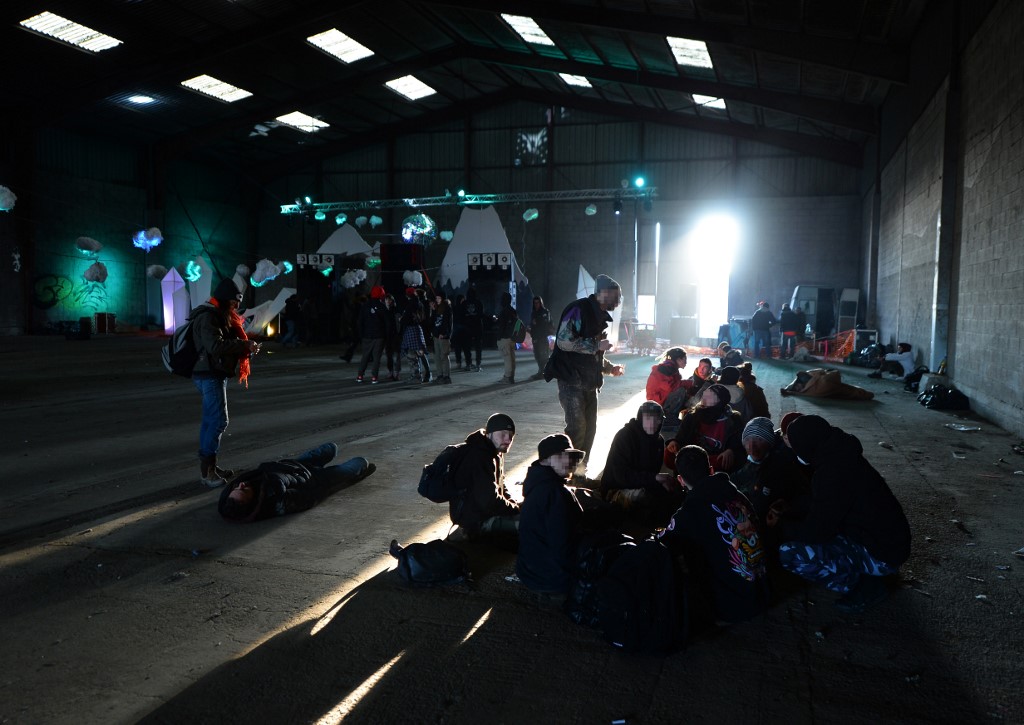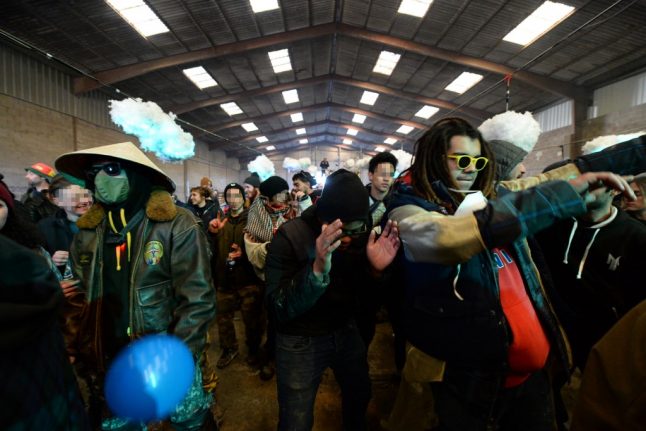Reports said that the rave party took place in an empty warehouse belonging to a storage company.
Prosecutors have opened an investigation into the illegal organisation of a musical gathering and premeditated violence against persons in authority.
Vehicles registered from all over France were still parked at the site on Friday and many revellers were present as techno music thudded away, an AFP journalist said.

People wait after dancing during a party in a disused hangar in Lieuron about 40km (around 24 miles) on south of Rennes, on January 1, 2021. JEAN-FRANCOIS MONIER / AFP
'Little social distancing'
Participants interviewed by AFP said that the revellers had included partygoers from foreign countries, including Spain and Britain.
One participant, who gave his name as Jo from the Alsace region of eastern France and refused to be identified further, said they had all met at a meeting point on Thursday evening in the parking lot of a shopping centre.
Then the convoy headed for Lieuron where the police tried to prevent them from passing, he said.
He acknowledged that “very few had respected social distancing” at the event, which was supposed only to end later on Saturday.
French authorities have been particularly concerned about mass wildcat rave parties throughout the pandemic but New Year's night was a particular concern.
In the southern city of Marseille, security forces halted an illegal party grouping some 300 people, police said. Over 150 people were warned and the three suspected organisers have been arrested.
Interior Minister Gerald Darmanin said that 132,000 police had been deployed across France for the New Year celebrations to ensure security and that the curfew was respected.



 Please whitelist us to continue reading.
Please whitelist us to continue reading.
The organisers should be be sued for endangering public health, and the health of the wider population too, not just the ‘party goers’ All the attendence money and equipment should be confiscated and sold.